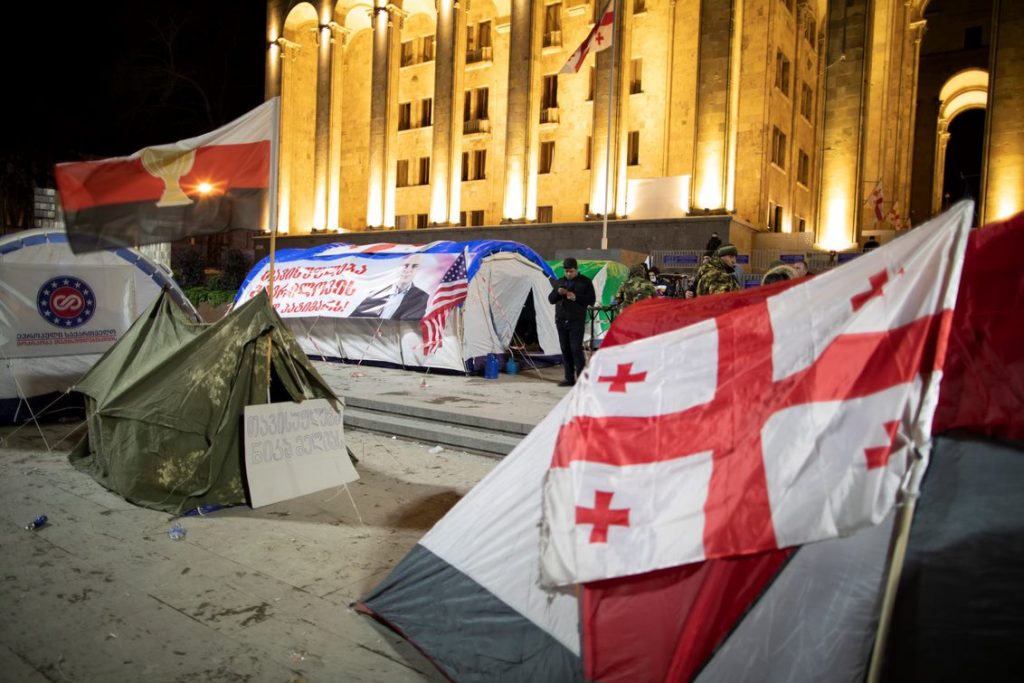Bidzina Lebanidze, Senior Analyst, Georgian Institute of Politics; Post-Doctoral Research Fellow, University of Jena
In Georgia, political rivalry equals enmity. In the words of Game of Thrones’ Cersei Lannister, “When you play the game of thrones you win, or you die. There is no middle ground.” But as much some of Georgia’s historians would like us to believe, Georgia is not medievalized scene of mortal combat. It is a parliamentary democracy.
Georgia’s political elites have been holding the country back. Now they need to prove that they can sort out the mess they created during the last decades.
On February 25, Georgia marked 100 years since the Soviet occupation, which toppled the democratically constituted First Republic, against the backdrop of an acute social and political crisis. While crises are nothing new in Georgia’s polarized political culture, events took an especially dangerous turn after an opposition leader was arrested and the country’s friends held their breath expecting the worst.
As the president of the European Council, Charles Michel stated during his visit in Tbilisi, this crisis will require serious steps by both sides to resolve. Georgia’s political actors, both in the government and the opposition, should abandon their confrontational approach and learn the language of compromise.
While international facilitators can provide a neutral arena for negotiations, it is up to the conflicting parties to find a compromise solution to the current crisis. On the other hand, international actors could push Georgia’s political class towards consensus-based ground, based on mutual trust.
The snap elections, which have been widely pondered, are one way that is regularly used to deescalate political crises in Western countries. Another solution could be a power-sharing arrangement. In exchange for ending its parliamentary boycott, the opposition could be given a several ministerial portfolios as well as the prosecutor general post. A respected public figure, trusted by both the opposition and the government, should be appointed to head the Central Election Commission while starting sweeping reform of old system.
Cohabitation and coalitional politics, ideas that have been badly tainted in Georgia, should become a new modus operandi in the country. This is the only way to complete the edifice of Georgia’s unfinished democracy and to prove to its international partners that the country remains a beacon of stability and democracy.
The current unsustainable stalemate between the government and opposition is pushing the country towards international isolation and a never-ending cycle of instability, which will only benefit Russia and alienate Georgia from the Western world.
Today, it is critical for Georgia to act quickly and fast-track political reforms to ensure its uninterrupted path towards Euro-Atlantic integration.
Some twenty years ago, Georgians managed to turn the tide and save their failing state. Today, the country needs another cultural revolution: all political actors should step away from a zero-sum-game mentality and move towards European-style consensus politics. It is time for the trial by compromise, instead of trial by combat.

